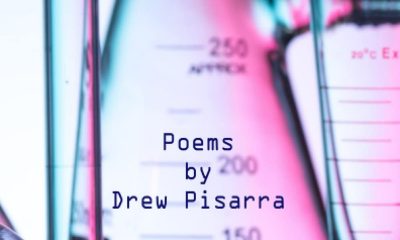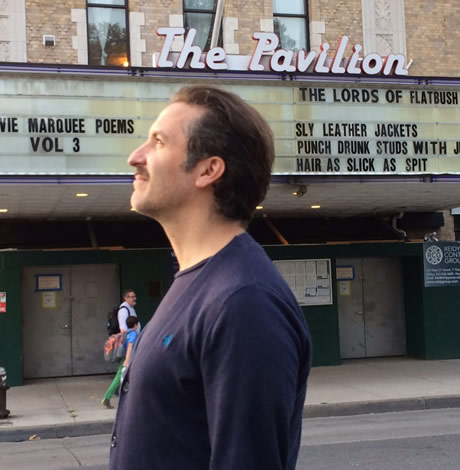Books
Drew Pisarra’s ‘dangerously funny and queerly inventive brain’
‘You’re Pretty Gay’ shatters expectations and social mores
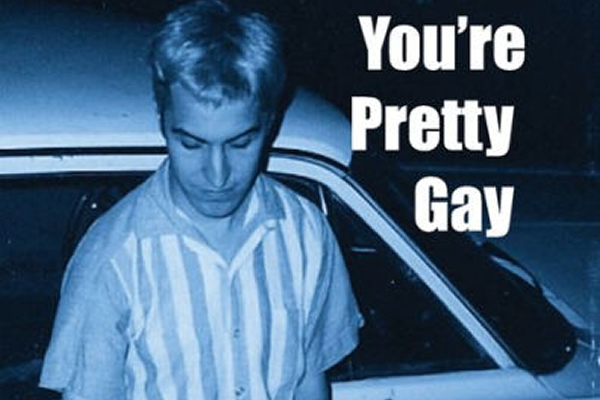
Is there anything more absurd than this, wondered gay poet and writer Drew Pisarra. Pisarra, then, was an assistant to a paralegal at a toothpaste company.
Fiercely protective of the pattern on its toothpaste, they wrote letters to rivals who, they felt, were infringing on their copyright.
Even when their competitors were in countries in the middle of a civil war, “They would write back, ‘we can’t respond now, we’re in a war,’” Pisarra said.
But that didn’t soften the heart of the toothpaste company. They’d insist that “this most important matter be dealt with as soon as the war ends,” Pisarra said.
If you think that authors don’t encounter the absurdity and grit of everyday life or that all writers do is drink coffee (or sip stronger libations) while looking at the sunset, you haven’t met Pisarra.
Pisarra, 56, whose new short story collection “You’re Pretty Gay” is just out from Chaffinch Press, has worked at everything from ventriloquism to domestic work.
The word “unique” is so hackneyed that it’s a cliche to say it’s a cliche. But there’s no other way to describe “You’re Pretty Gay.”
This collection “is a prime example of Drew Pisarra’s dangerously funny and queerly inventive brain,” said Kevin Sampsell, author of “This Is Between Us.” “Each story is its own performance, its own shattering of expectations and social mores.”
Pisarra, who lives in Manhattan, gives readers a mosaic of wit, surrealism, sex, queerness, memory, mortality and self-discovery.
In “You’re Pretty Gay,” there are gay bars in New York and New Orleans.
You’ll find everything from adolescent bullies fighting over a rare caterpillar to a character taking an AIDS test and, later, meeting up with Mrs. Claus.
“Mrs. Claus I didn’t even know you were alive,” says the narrator of “Arctic Chill.” “I didn’t even know you were real. I haven’t received a gift from you or your husband in ten years.”
Another of Pisarra’s tales revolves around a trip to hell. “I love traveling,” says the narrator of “The Hat from Hell, “I got this hat when I was in Hell back in 1992.”
In “Granny,” siblings gather after their mother’s death. “All anyone could remember of her was that chair, how she sat in it for the last 40 years,” Pisarra writes, “immobile as ‘Jeopardy’ and the ‘Wheel of Fortune’ glared at her night after night.”
Pisarra’s characters yearn to find love, sex, and who they really are.
“In my quest to bed mankind, I tended to avoid perfection’s rejection,” says the narrator of “Every Man for Myself.”
Pisarra, whose first short story collection “Publick Spanking” was published in 1996, was born in Orange, N.J. When he was in the third grade, he moved to Maryland. There, except for living in Oxon Hill for a year, he grew up in Silver Spring.
When Pisarra was growing up, being gay wasn’t even remotely on the horizon. “There was such denial in the culture then,” Pisarra said.
From early on, he had feelings for men. “I had a crush on a boy in kindergarten,” Pisarra said.
He consulted books and a priest, which wasn’t helpful. They said he’d grow out of it.
“As a teenager, I recognized that I hadn’t outgrown it,” Pisarra said.
Pisarra was a college freshman when he came out. “I sobbed the night I came out,” he said.
He was out in college, Pisarra said, “but I wasn’t getting laid.” That changed when he moved to New Orleans after college.
Pisarra graduated from Hofstra University in 1987 with a bachelor’s degree in theater.
In college, a professor had the students sit in a circle. Then, the teacher told them how she thought they’d be cast.
“She told me, ‘you’re a grotesque,’”Pisarra said, “‘You won’t work until you’re in your fifties. Because your face and body don’t match.’”
Pisarra was relieved to hear this. His sense of relief was related to being a young gay man in the late 1980s.
“I wasn’t interested in being closeted,” Pisarra said, “I wrote. I wanted to perform. I wasn’t interested in conforming.”
Since then, Pisarra has been creating – performing and writing his own material. Some of the stories in “You’re Pretty Gay” were originally created for the stage.
“I don’t write that often,” Pisarra said, “I started writing the stories in ‘You’re Pretty Gay’ 20 years ago.”
A prodigious reader, Pisarra has always “written to some degree,” he said.
Pisarra got turned on to writing poetry when he went to a meeting of a gay and lesbian writers group.
“There were, like, 10 people in this apartment,” Pisarra said, “there was a terrible woman sitting next to me.”
He would have dropped out of the group, if he hadn’t met writer Mare Davis, now his close friend.
“I said to her, ‘I never want to see any of these people again except you,’” Pisarra said, “She inspired me to get into poetry.”
Davis wrote the introduction to Pisarra’s poetry collection “Infinity Standing Up” (Capturing Fire Press).
Released in 2019, the volume of sexy, playful sonnets received glowing reviews from the Washington Post, the Blade and other outlets.
“Devour me! Think me not some crazy nut!,” Pisarra writes in one of his sonnets.
With lines like these, he gives Shakespeare a run for his money.
Pisarra has held a variety of jobs – many of which have involved the arts. He has helped homeless people with mental health issues to find housing.
“I ran a writers group for them,” Pisarra said, “I encouraged a super-talented woman to send her work out.”
The woman and Pisarra submitted their work to the same magazine. “Her work was accepted. Mine wasn’t,” he said, “I was thrilled!”
In an unusual career twist, Pisarra, who received a literary grant from the Café Royal Cultural Foundation, toured a ventriloquist act entitled “Singularly Grotesque.” He created the act after the Portland Institute for Contemporary Art commissioned him to develop a new solo piece.
“I was wandering around the library aisles and I found two (self-help) pamphlets on talking with ‘multiple’ selves,’” Pisarra said, “and I thought this is ventriloquism in a nutshell.”
Pisarra hadn’t watched much TV. But that didn’t keep him from interviewing with AMC to be its director of digital media.
“I thought why not,” Pisarra said, “it would be a chance to see what else is out there in the world.”
He worked on the websites for “Mad Men” and “Breaking Bad.” “It was a pleasure to be part of the online team for these cultural phenomena!” Pisarra said.
With Molly Gross, Pisarra co-founded Saint Flashlight. In this project, he and Gross find inventive ways to get poetry into public spaces.
One of the project’s most innovative efforts has been putting haiku on movie marquees. It’s fun to see people, looking up, counting the syllables, Pisarra said. You sweat when you put the letters up on the marquee, he added.
“It’s part of the fun! It makes you feel like you’re making something matter,” Pisarra said.
He doesn’t want poetry to be confined to “The New Yorker.” “It should push the envelope,” Pisarra said, “It’s not just for the upper crust.”
Books
New book offers observations on race, beauty, love
‘How to Live Free in a Dangerous World’ is a journey of discovery
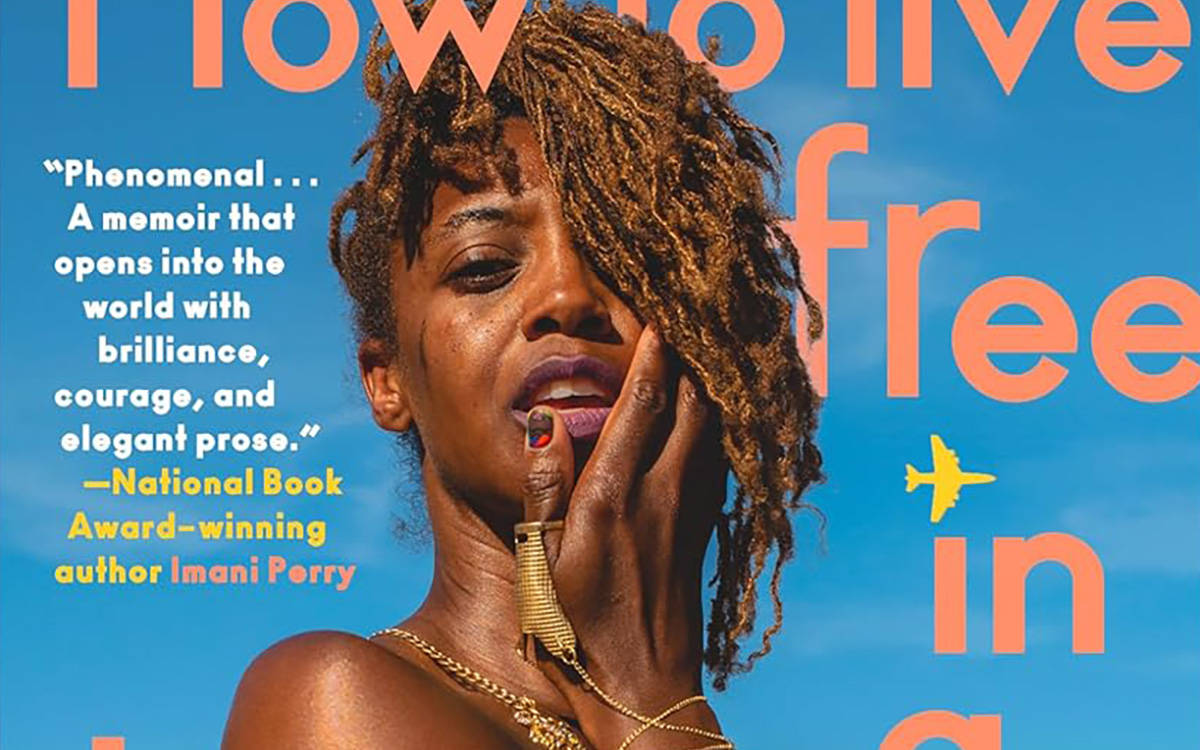
‘How to Live Free in a Dangerous World: A Decolonial Memoir’
By Shayla Lawson
c.2024, Tiny Reparations Books
$29/320 pages
Do you really need three pairs of shoes?
The answer is probably yes: you can’t dance in hikers, you can’t shop in stilettos, you can’t hike in clogs. So what else do you overpack on this long-awaited trip? Extra shorts, extra tees, you can’t have enough things to wear. And in the new book “How to Live Free in a Dangerous World” by Shayla Lawson, you’ll need to bring your curiosity.

Minneapolis has always been one of their favorite cities, perhaps because Shayla Lawson was at one of Prince’s first concerts. They weren’t born yet; they were there in their mother’s womb and it was the first of many concerts.
In all their travels, Lawson has noticed that “being a Black American” has its benefits. People in other countries seem to hold Black Americans in higher esteem than do people in America. Still, there’s racism – for instance, their husband’s family celebrates Christmas in blackface.
Yes, Lawson was married to a Dutch man they met in Harlem. “Not Haarlem,” Lawson is quick to point out, and after the wedding, they became a housewife, learned the language of their husband, and fell in love with his grandmother. Alas, he cheated on them and the marriage didn’t last. He gave them a dog, which loved them more than the man ever did.
They’ve been to Spain, and saw a tagline in which a dark-skinned Earth Mother was created. Said Lawson, “I find it ironic, to be ordained a deity when it’s been a … journey to be treated like a person.”
They’ve fallen in love with “middle-American drag: it’s the glitteriest because our mothers are the prettiest.” They changed their pronouns after a struggle “to define my identity,” pointing out that in many languages, pronouns are “genderless.” They looked upon Frida Kahlo in Mexico, and thought about their own disability. And they wish you a good trip, wherever you’re going.
“No matter where you are,” says Lawson, “may you always be certain who you are. And when you are, get everything you deserve.”
Crack open the front cover of “How to Live Free in a Dangerous World” and you might wonder what the heck you just got yourself into. The first chapter is artsy, painted with watercolors, and difficult to peg. Stick around, though. It gets better.
Past that opening, author Shayna Lawson takes readers on a not-so-little trip, both world-wide and with observant eyes – although it seems, at times, that the former is secondary to that which Lawson sees. Readers won’t mind that so much; the observations on race, beauty, love, the attitudes of others toward America, and finding one’s best life are really what takes the wheel in this memoir anyhow. Reading this book, therefore, is not so much a vacation as it is a journey of discovery and joy.
Just be willing to keep reading, that’s all you need to know to get the most out of this book. Stick around and “How to Live Free in a Dangerous World” is what to pack.
The Blade may receive commissions from qualifying purchases made via this post.
Books
Story of paralysis and survival features queer characters
‘Unswerving: A Novel’ opens your eyes and makes you think
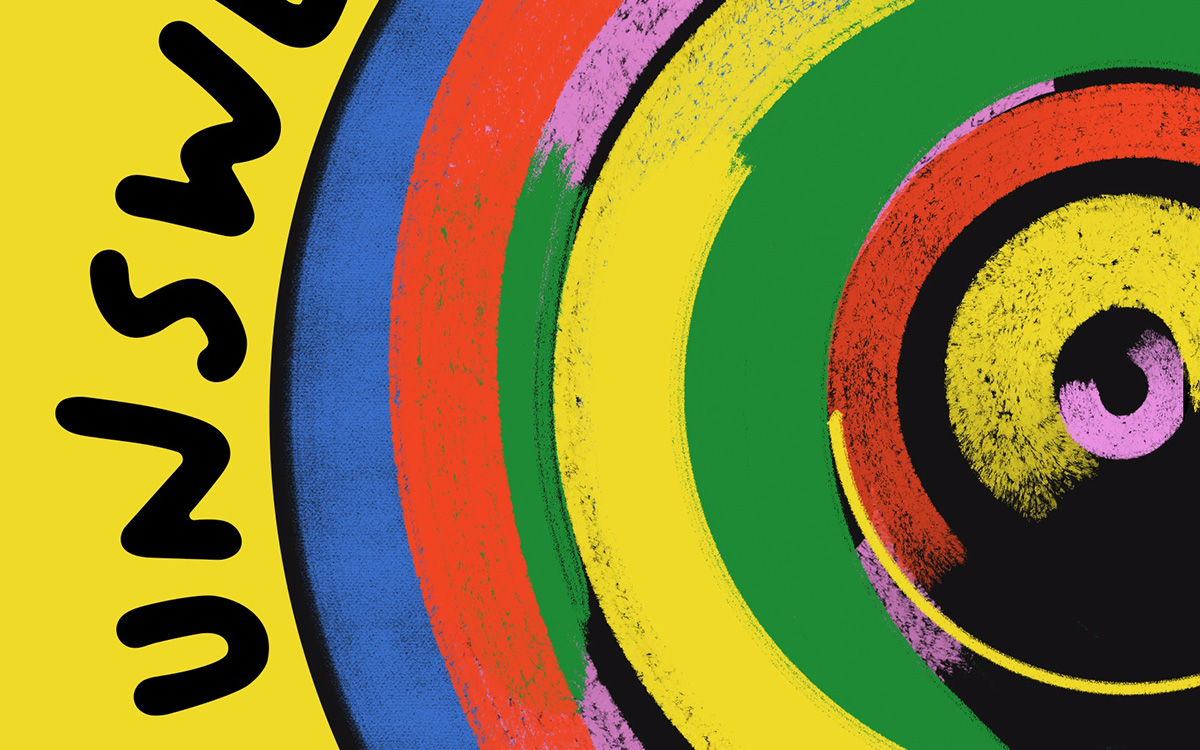
‘Unswerving: A Novel’
By Barbara Ridley
c.2024, University of Wisconsin Press
$19.95 / 227 pages
It happened in a heartbeat.
A split-second, a half a breath, that’s all it took. It was so quick, so sharp-edged that you can almost draw a line between before and after, between then and now. Will anything ever be the same again? Perhaps, but maybe not. As in the new book “Unswerving” by Barbara Ridley, things change, and so might you.

She could remember lines, hypnotizing yellow ones spaced on a road, and her partner, Les, asleep in the seat beside her. It was all so hazy. Everything Tave Greenwich could recall before she woke up in a hospital bed felt like a dream.
It was as though she’d lost a month of her life.
“Life,” if you even wanted to call it that, which she didn’t. Tave’s hands resembled claws bent at the wrist. Before the accident, she was a talented softball catcher but now she could barely get her arms to raise above her shoulders. She could hear her stomach gurgle, but she couldn’t feel it. Paralyzed from the chest down, Tave had to have help with even the most basic care.
She was told that she could learn some skills again, if she worked hard. She was told that she’d leave rehab some day soon. What nobody told her was how Les, Leslie, her partner, girlfriend, love, was doing after the accident.
Physical therapist Beth Farringdon was reminded time and again not to get over-involved with her patients, but she saw something in Tave that she couldn’t ignore. Beth was on the board of directors of a group that sponsored sporting events for disabled athletes; she knew people who could serve as role models for Tave, and she knew that all this could ease Tave’s adjustment into her new life. It was probably not entirely in her job description, but Beth couldn’t stop thinking of ways to help Tave who, at 23, was practically a baby.
She could, for instance, take Tave on outings or help find Les – even though it made Beth’s own girlfriend, Katy, jealous.
So, here’s a little something to know before you start reading “Unswerving”: author Barbara Ridley is a former nurse-practitioner who used to care for patients with spinal cord injuries. That should give readers a comfortable sense of satisfaction, knowing that her experiences give this novel an authenticity that feels right and rings true, no faking.
But that’s not the only appeal of this book: while there are a few minor things that might have readers shaking their heads (HIPAA, anyone?), Ridley’s characters are mostly lifelike and mostly likable. Even the nasties are well done and the mysterious character that’s there-not-there boosts the appeal. Put everyone together, twist a little bit to the left, give them some plotlines that can’t ruined by early guessing, and you’ve got a quick-read novel that you can enjoy and feel good about sharing.
And share you will because this is a book that may also open a few eyes and make readers think. Start “Unswerving” and you’ll (heart) it.
The Blade may receive commissions from qualifying purchases made via this post.
Books
Examining importance of queer places in history of arts and culture
‘Nothing Ever Just Disappears’ shines with grace and lyrical prose
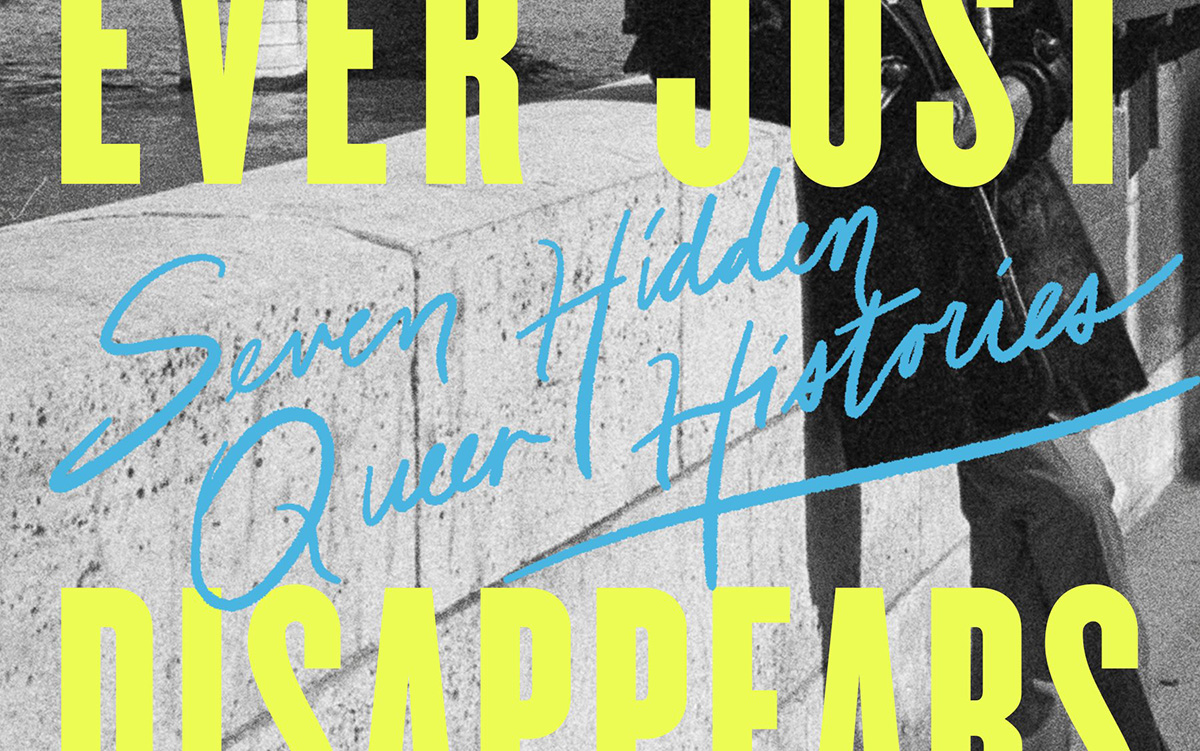
‘Nothing Ever Just Disappears: Seven Hidden Queer Histories’
By Diarmuid Hester
c.2024, Pegasus Books
$29.95/358 pages
Go to your spot.
Where that is comes to mind immediately: a palatial home with soaring windows, or a humble cabin in a glen, a ramshackle treehouse, a window seat, a coffeehouse table, or just a bed with a special blanket. It’s the place where your mind unspools and creativity surges, where you relax, process, and think. It’s the spot where, as in the new book “Nothing Ever Just Disappears” by Diarmuid Hester, you belong.

Clinging “to a spit of land on the south-east coast of England” is Prospect Cottage, where artist and filmmaker Derek Jarman lived until he died of AIDS in 1994. It’s a simple four-room place, but it was important to him. Not long ago, Hester visited Prospect Cottage to “examine the importance of queer places in the history of arts and culture.”
So many “queer spaces” are disappearing. Still, we can talk about those that aren’t.
In his classic book, “Maurice,” writer E.M. Forster imagined the lives of two men who loved one another but could never be together, and their romantic meeting near a second-floor window. The novel, when finished, “proved too radical even for Forster himself.” He didn’t “allow” its publication until after he was dead.
“Patriarchal power,” says Hester, largely controlled who was able to occupy certain spots in London at the turn of the last century. Still, “queer suffragettes” there managed to leave their mark: women like Vera Holme, chauffeur to suffragette leader Emmeline Pankhurst; writer Virginia Woolf; newspaperwoman Edith Craig, and others who “made enormous contributions to the cause.”
Josephine Baker grew up in poverty, learning to dance to keep warm, but she had Paris, the city that “made her into a star.” Artist and “transgender icon” Claude Cahun loved Jersey, the place where she worked to “show just how much gender is masquerade.” Writer James Baldwin felt most at home in a small town in France. B-filmmaker Jack Smith embraced New York – and vice versa. And on a personal journey, Hester mourns his friend, artist Kevin Killian, who lived and died in his beloved San Francisco.
Juxtaposing place and person, “Nothing Ever Just Disappears” features an interesting way of presenting the idea that both are intertwined deeper than it may seem at first glance. The point is made with grace and lyrical prose, in a storyteller’s manner that offers back story and history as author Diarmuid Hester bemoans the loss of “queer spaces.” This is really a lovely, meaningful book – though readers may argue the points made as they pass through the places included here. Landscapes change with history all the time; don’t modern “queer spaces” count?
That’s a fair question to ask, one that could bring these “hidden” histories full-circle: We often preserve important monuments from history. In memorializing the actions of the queer artists who’ve worked for the future, the places that inspired them are worth enshrining, too.
Reading this book may be the most relaxing, soothing thing you’ll do this month. Try “Nothing Ever Just Disappears” because it really hits the spot.
The Blade may receive commissions from qualifying purchases made via this post.
-

 District of Columbia3 days ago
District of Columbia3 days agoCatching up with the asexuals and aromantics of D.C.
-

 South America3 days ago
South America3 days agoArgentina government dismisses transgender public sector employees
-

 Maine4 days ago
Maine4 days agoMaine governor signs transgender, abortion sanctuary bill into law
-

 District of Columbia4 days ago
District of Columbia4 days agoBowser budget proposal calls for $5.25 million for 2025 World Pride

